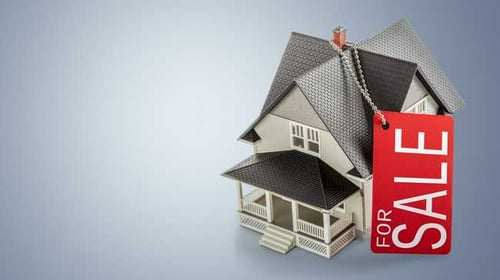
During the Great Recession of 2008, millions of Americans lost their homes. The housing market collapsed, leaving the national economy in shambles.
Finger-pointing was common in the years to follow, but most financial experts can agree to one major cause: subprime mortgages.
Subprime loans are dangerous because they hide behind the pretense of helping low-income Americans.
But these loans are challenging to manage for both the lender and the homeowner. If you're in the market for a home loan with less than stellar credit, consider a Non-QM loan instead.
Take a look at this overview of how Non-QM loans differ from subprime loans.
Qualified Mortgage vs. Non-Qualifying Mortgages
Most people are familiar with 'Qualified Mortgages.' A Qualified Mortgage is a type of loan that has clearly defined rules for approval.
These rules make the loan safer for lenders because they point to your ability to repay the debt. Conventional lenders have to do their due diligence or make a good faith effort to decide that you have the financial means and creditworthiness to afford the loan payments.
This rule is called the "ability to repay" rule. When you're approved for a Qualified Mortgage, it's assumed that the lender took all the steps necessary to determine your ability to repay.
Usually, Qualified Mortgages won't allow high-risk loan features including:
- A loan term longer than thirty years.
- Interest-only periods.
- Limitations on Points and fees: The threshold is 3 percent of the loan balance, but larger amounts are allowed for loans under $100,000.00.
Qualified Mortgage lenders won't loan money to anyone whose debt to income ratio goes beyond a certain point because it puts the lender at risk. Borrowers can challenge lenders in court if they can prove the lender didn't make a good faith effort to ensure they had the ability to repay the debt.
Non-Qualifying (Non-QM) mortgages don't meet the QM as Qualifying Mortgages. Lenders have more flexibility in using limited or alternative documentation in order to determine a borrower's ability to repay the debt.
Non-QM lenders may be able to help self-employed borrowers by using alternative ways to prove their income. There's still an ability to repay standard with Non-QM mortgages, but not as stringent as Qualified Mortgages. Others are exempt from ability to repay altogether, like house flippers or loans for business purpose. The rule of measure varies according to actual use of the proceeds of the loan and not by the occupancy.
Read more: What is the difference between a Non-Qualified Mortgage and a Qualified Mortgage Loan?
Aren't Non-QM Loans a Type of Subprime Loan?
No. Subprime loans included stated loans, where income was not regarded; Non-QM loans are far from what a subprime loan used to be. A borrower might not be approved with a conventional lender for a wide range of reasons. Non-QM loans help people with unconventional situations borrow money.
Subprime mortgage loans are banned. Non-QM lenders help borrowers with an alternative sources of income to prove ability to repay and get a mortgage loans. Having an unconventional situation might simply mean that you earn most of your income outside the United States.
Where you earn your money won't matter to a Non-QM lender as long as the income is verifiable. You might have other fees to compensate for the risk like higher fees or a larger down payment.
Subprime mortgages are NOT Qualified Mortgages. Lenders have the same obligation to check a borrower's financial history, but often corners are cut to ensure approval.
Subprime mortgages created a mortgage crisis for the same reason lenders have a legal obligation to determine your ability to repay. The sudden default of thousands of homeowners at once is crippling for the local, regional, and national economies.
In the Great Recession case, millions of homeowners defaulted, revealing that lenders failed to meet the requirements of offering Qualified Mortgages.
Non-QM mortgage lenders don't aim to simply meet loan quotas. These lenders are looking for borrowers who can meet the repayment obligation without any issues.
These borrowers don't all have a cookie-cutter financial profile. Some are new business owners, while others are individual real estate investors.
For Qualified Mortgage lenders, this demographic is risky. Conventional lenders don't have the expertise to verify whether a business venture will perform well or if a home in terrible condition can be rehabbed.
But Non-QM mortgage lenders have experience lending niche products like hard money loans and understanding the right financial profile to look for. They don't seek out borrowers with less than average credit or who can't prove employment like subprime lenders.
More homeowners in Texas that fall into the low-income, nontraditional category want Non-QM loans to avoid banks' growing restrictions. They can rest assured they'll find more options to qualify than with a strict traditional mortgage.
Who Needs a Non-QM Loan?
Non-QM loans are a great option for anyone who can repay mortgage debt but doesn't have all the traditional paperwork needed to prove it. Here are some reasons to apply for a Non-QM loan.
- Investor Deals
One common reason to pursue a Non-QM loan is to buy an investment property. If you already have mortgage loans in your name, it might be tough to convince a traditional lender to provide you with another mortgage loan.
Non-QM loans look beyond your personal income to decide whether you can repay the debt. You can often use your business's income or a larger down payment to prove your ability to repay.
- Flipping Houses
The value of the property you plan to flip is significant to hard money lenders offering Non-QM loans. Many of these lenders understand the housing market well and will look at the property deal itself to decide whether you can repay the debt.
In addition to the property profile, your experience as a house flipper is important. Even if you have bad credit, if you've got proven experience flipping homes and have a good deal on the table, you're more likely to qualify for a hard money loan.
Read more: Flipping Homes - Do's and Don'ts.
- Self Employed
It's not uncommon for someone who is self-employed to have a low taxable income. To lower their tax burden, self-employed people look for deductions and credits at every turn.
After deducting as much as they can to offset the amount of taxes owed, they typically have a low taxable income. This doesn't mean their business doesn't earn money.
Self-employed individuals with a healthy cash flow might consider a Non-QML to buy their primary residence.
- Houston Hard Money Loans
Borrowers in Texas are getting out of the subprime loan market. Many turn to alternative funding sources to avoid the same financial crisis as the country experienced in 2008.
Homeowners didn't have the privilege of a bailout to help them recover financially. Non-QM loans offer borrowers an alternative mortgage option with clearly stated lending terms.
For over 30 years, AMI Lenders have been have been providing financing options to individuals in the Houston area. If we aren't able to assist you, we'll be happy to direct you to someone who can.
Contact us for any questions or to apply for a residential hard money loan





